
GO Technology: Why 6:12pm is the new 8pm
Consolidate your business intelligence into one single view. Dimensions+ is Zonal’s suite of additional reporting tools, enabling you to combine various data sources, such as accounting, payroll, and customer feedback, within one platform to create bespoke views and dashboards. Requires a Power BI Pro license.
AI has the potential to be a real game-changer for the hospitality sector. Operators can, for example, tap into AI to make real-time decisions that keep things running efficiently. By factoring in things like weather patterns and foot traffic from previous days, AI can predict demand and even suggest actions like adjusting staffing levels during busy times—helping operators stay ahead of the game when it comes to service and potentially cutting wage bills.
Using AI can also make sales forecasts more precise—right down to individual products. This means operators can keep inventory in check, reduce waste, and make sure they’ve got the right stock on hand when it’s needed most. In addition, by pulling in data from a number of sources, AI can generate helpful insights and daily summaries allowing for quicker, smarter decision-making and smoother day-to-day operations.
Beyond forecasting, AI provides valuable real-time support during trading hours. For instance, if kitchen operations slow down, AI can suggest reallocating staff to maintain service standards. For new hires, AI offers tailored onboarding guidance based on the business’s systems, helping them get up to speed faster.
AI can also be used to better understand guests. Airship’s AI Flight Assist is such a tool and is currently helping operators to effectively boost sales by making it easier for operators and their teams to query and segment their customer database through an accessible and conversational interface. By providing operators and their teams with a way to effectively identify and extract specific customer behaviours and insights, businesses can easily engage customers with smarter and more personalised marketing strategies that truly add value.
All of this data-driven support results in better resource management, a more efficient team, and an overall operation that is more focused on what really matters — delivering great customer experiences.
AI is playing an increasingly important role in shaping the customer experience from before people even enter a venue. Platforms like TripAdvisor and Google have started to use AI to summarise guest feedback, giving potential customers a quick snapshot of what to expect before they walk through the door. By making data accessible to operators, AI can also help businesses and marketing teams to create personalised offers and experiences for their customers, building loyalty and driving repeat visits.
With online reviews becoming increasingly influential when it comes to helping customers choose where to drink or dine, this makes it crucial for operators to stay on top of their online reputation and engage with feedback proactively.
Once guests are inside the venue, AI helps streamline behind-the-scenes tasks, giving staff more time to focus on interacting with customers. With fewer administrative duties to juggle, staff can provide a more personalised and attentive service, ultimately enhancing guest satisfaction. So, by enhancing both online perceptions and in-venue service, AI enables operators to deliver a seamless, more impactful customer experience.
AI technologies like ChatGPT, Gemini, and Meta AI are rapidly advancing, getting better at understanding human behaviour and enabling more natural, intuitive interactions. As these tools evolve, a big focus will be on making them more transparent.
If AI is to have a truly positive impact on hospitality, operators will need to trust the tech and to educate themselves about how it works. AI providers to the hospitality industry will need to show where the data comes from and how conclusions are made. This transparency will help operators and their teams feel confident that the AI-generated recommendations are built on reliable, accurate information. As these innovations keep developing, operators can look forward to AI offering sharper insights, which will ultimately enhance decision-making and streamline operations across the industry.
AI technologies are already in place, supporting busy teams both on the floor and behind the scenes. Providers such as AddSalt for example, provide conversational, yet automated AI phone bookings using voice recognition software. The system eases the pressure on front of house operations by reducing the time spent monitoring and answering phone calls, while also removing the possibility of any calls being missed.
When it comes to back of house operations, AI is equally as beneficial. AI can be used to optimise staff rotas, make sales forecasts, reduce waste, analyse stock levels and product performance, as well as produce daily summaries, enabling operators and their teams to make faster, smarter business decisions.

GO Technology: Why 6:12pm is the new 8pm
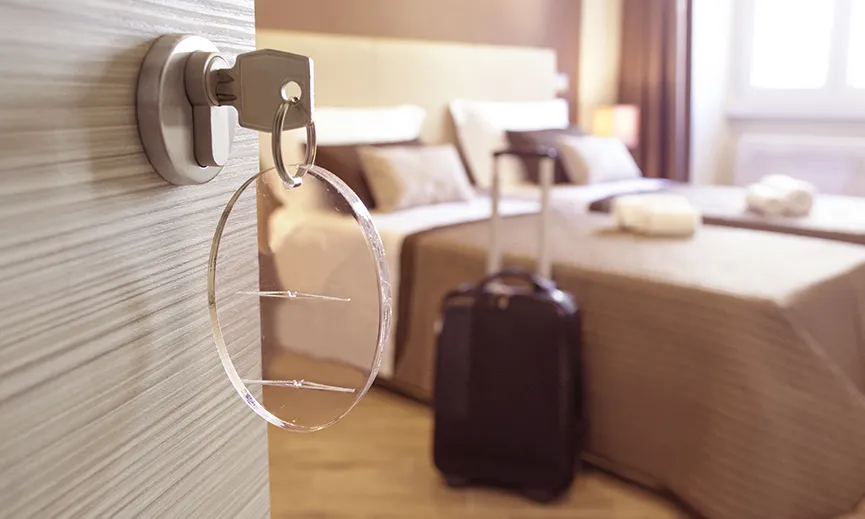
Seamless stays and smooth operations: The impact of Zonal PMS on pub accommodation

Booking occasions in 2025: Guest behaviour and the opportunity for operators

Tips for Tips! Boost Your Team’s Tips and Efficiency with TiPJAR This Christmas
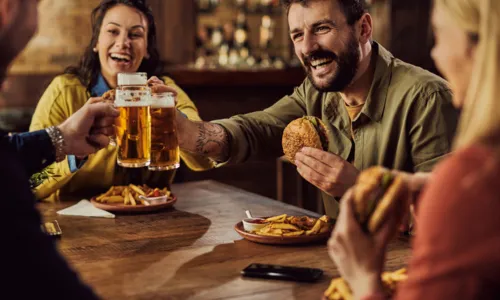
GO Technology: Consumers and hospitality: 2024 in review
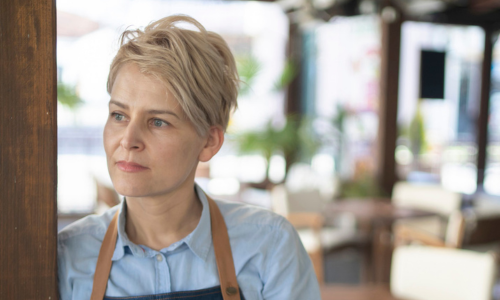
GO Technology: The truth behind no-shows

GO Technology: Fixing people’s hospitality bugbears

Making the business case to Finance for hospitality technology

Transform your hotel’s back-of-house operations with hospitality tech
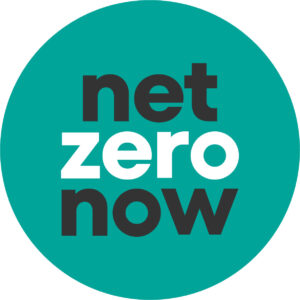
Guest blog by Net Zero Now
The climate crisis is no longer a distant threat but is already having a very real impact on the hospitality industry. That impact is both direct, resulting in increased costs as supply chains are put under increasing pressure and the cost of energy increases, and indirect, driving new attitudes and expectations of customers, employees, and investors.
But with these challenges come opportunities – to improve your bottom line, to establish yourself as a leader in an increasingly eco-conscious market and to increase the value of your business.
The hospitality industry is uniquely vulnerable to the effects of climate change. Rising temperatures, extreme weather events, and shifts in global ecosystems directly affect the supply chains that businesses rely on, resulting in higher costs and lower / less reliable availability.. Energy prices are also likely to soar as demand for cooling increases and fossil fuel resources become scarcer.
Indirectly, the climate crisis is changing the attitudes of the people who make your business thrive – your customers, your employees and your investors.
Businesses also face increased regulatory pressure. In the UK, larger businesses (£36m+ t’over) are already required to report Scope 1 and 2 emissions under the Streamlined Energy and Carbon Reporting (SECR) regulations. These requirements are expected to expand in the near future, reducing the threshold to include more businesses and increasing the reporting requirements to include Scope 3 emissions (the emissions from your supply chain, including all the food and drink you buy throughout the year). This is particularly relevant to the hospitality sector which contributes up to 15% of the country’s greenhouse gas emissions (Net Zero Now, 2024, and where Scope 3 emissions account for c.70-95% of emissions, the vast majority of which comes from the food served (see Figure 1).
Figure 1: Emissions Sources from different types of hospitality business
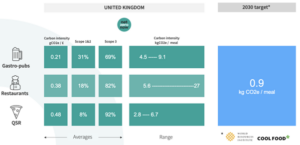
Source: Net Zero Now Customer analysis; Cool Food 2022
As Figure 1 also shows, as an industry, we have a long way to go to meet the 2030 targets for carbon emissions per meal. Getting anywhere near these targets will take more than removing plastic straws and adding a few LED lightbulbs, hospitality businesses need to understand their full carbon footprint, including Scope 3 emissions, and find ways to minimise their climate impact.
I know what you’re thinking – “it’s too expensive”, “it’s too complicated”, “we’re too busy” – and until recently, you might have been right. But…
and , as if all of the above wasn’t enough
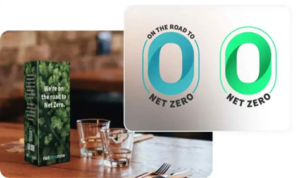
Ready to turn the climate challenge into a business opportunity? Discover how Net Zero Now’s integration with Zonal can help you accurately measure, manage, and reduce your carbon footprint. Start your journey towards sustainability today—contact the Zonal team and see how we can support your business in leading the way to a net zero future.
Sources:

Guest blog by RevenueRich
With a new government in power, continued pressure on household finances and cooler-than-average temperatures to contend with, it’s safe to say that it hasn’t been the easiest summer for the UK hospitality industry. As the low season approaches for many of us, it could be an uncertain outlook for hoteliers, but with savvy use of the right technology, there is a plethora of ways to weather the storm and boost profits over the coming months.
Here, RevenueRich, a consultancy specialising in commercial revenue management, pricing, distribution and analytics for the hospitality industry, gives a quick guide on some of the commercial strategies that are most effective during the quieter months of the year.
Stay ahead of your competitors by planning packages to excite and entice new guests at the times you need, well in advance.
Make the best use of your hotel’s facilities, include exclusive discounts and offers and communicate these clearly through collaborative teamwork across your sales, marketing, and revenue management functions; isolated activity rarely yields the best results.
Sell the right rooms, to the right people, at the right price! Extend your reach during periods of low demand by engaging with distribution partners, affiliations and Global Distribution Systems (GDS).
These platforms open doors to thousands of potential booking opportunities from online travel agencies, leisure agents, travel management companies and corporate travel departments looking for flights, transfers and places to stay.
Prices and packages can be adjusted to drive occupancy and total sales based on historical data and current trends, to help hoteliers maximise their profits.
Alongside this, revenue management software can support pricing decisions in near real-time using your hotel’s performance trends and local market competitor data.
Take control of your pricing to boost sales and avoid loss-making promotions. Ensure your rates are set correctly for autumn, winter and beyond by using revenue management systems and techniques with competitor demand and pricing insights.
Make practical decisions and see what does and does not work for your hotel by reviewing your data. Detailed reporting will allow your team to analyse trends, compare data from years gone by and make future forecasts for the low season ahead.
Data collected from your hotel PMS software, revenue management software, and market data sets will help you to create comprehensive weekly /monthly reports with strategic comparisons for planning.
Don’t wait too long to react, make it happen! As we said above, planning is key – find the right software and expertise for your hotel, embrace the technology and get your revenue management systems and processes in place with plenty of time before the nights draw in and demand slows.
It’s no secret that tech now plays a crucial role in business growth for hotels. In fact, revenue management techniques and technology combined can grow sales on average between 5% – 17%.
With their expert knowledge, RevenueRich can help you to shop around and explore the various revenue management systems on offer before selecting the right software for your hotel, team and guests.
With over 45 years of collective industry experience, the team put revenue management, pricing, distribution and analytics at the heart of its approach, to help grow your bottom-line profit.
 |
To find out more about RevenueRich visit our website or call 07709 321 237 to talk to a member of the team about how they could help your hotel. |
Family-run business
Established 1958
Award-winning holiday park operator
Collection of 9 parks across Dorset & Hampshire
“While we were looking for a new technology solution, we were looking for something that would be more integrated across the board, a cost saving for us as a business, and be able to take us to the next step.”Ryan Swatridge, Group Entertainments Manager, Shorefield Holidays
With a drive to deliver unforgettable experiences for their guests, owners and residents; as well as to join up their technology across their parks to deliver better integration and facilitate cost savings, Shorefield Holidays began the search for a technology partner that could help take them to the next level.
They needed a technology partner that would help them grow and expand, as well as deliver live, day-to-day insight over areas such as stock levels to enable more effective decision-making, something they were lacking at the time. The Shorefield team also wanted to be able to better understand their guests, including spending patterns, so technology that provided easy-to-digest and detailed reporting on how guests were engaging with the business was vital.
The system needed to be hospitality-dedicated, and ultimately make life easier for their guests and staff.
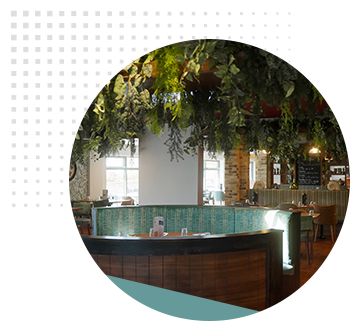
“Technology is a huge part of our business, from the iServes to the app, the loyalty, we massively embraced what Zonal brought to us. We’re just looking at different ways we can bring technology to what we do, we even have robots in our restaurant that will serve you your dinner.”Ryan Swatridge, Group Entertainments Manager, Shorefield Holidays
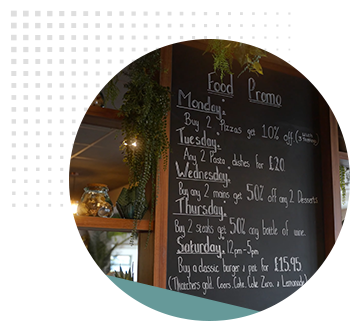
With a set of requirements and criteria in mind, the Shorefield team began researching different technology suppliers, as well as what their competitors were doing, and as a result chose to work with Zonal to implement a suite of connected hospitality technology across their parks to meet their business’s objectives.
With Zonal’s industry-leading EPoS at the core of their restaurants, the Shorefield team have since benefitted from real-time, accurate stock monitoring via Zonal’s built-in stock management module, enabling them to reduce costs on external stock counts. Zonal’s handheld EPoS ordering solution for staff, iServe, was also implemented, enabling staff to take orders at the tableside and automatically sending these through for fulfilment helping to improve guest experiences through speedier service and eliminating any room for errors, whilst providing significant time savings for staff by removing the need for orders to be re-keyed.
Alongside Zonal’s EPoS, the Shorefield team also chose to implement our purchase-to-pay inventory management solution, Acquire. With an end-to-end purchasing platform in place, fully integrated with their EPoS, the team have transformed their inventory management, enabling them to manage all of their suppliers and purchasing in one central platform, as well as reducing staff overhead by eliminating the need for their team to spend hours logging delivery notes and invoices.
“The difference is night and day; the money it’s saving us in not running multiple different platforms, and time it’s saving the team, and the fact that it’s just modernised us as a business.”Chris Weymouth, Assistant Complex Manager – Oakdene Forest Park, Shorefield Holidays
To further enhance their guest experience, Shorefield implemented Zonal’s Order & Pay app across their estate of holiday parks. Zonal worked with both the Shorefield operations and marketing teams to develop their app into exactly what they wanted it to be, including delivery to location functionality to enable guests to place orders for delivery to their accommodation – providing guests with convenience and flexibility.
All the functionality is backed up by Zonal’s robust suite of reporting. With Zonal’s integrated tech in place, the Shorefield team are able to drill down into more detail than ever, including a granular view of GP margins for every recipe item, helping them to expose any inefficiencies or fluctuations, and react accordingly.
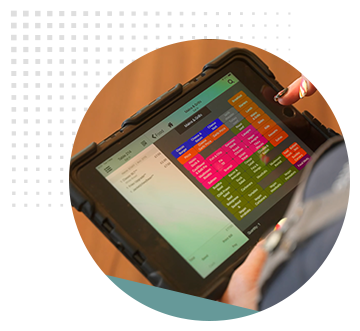
“You can see on the sales and profitability reports the GP margins for every recipe item, which means you can really expose any small problems you’re having with the fluctuation of figures. It gives you the ability to push that GP as much as you can.”Chris Weymouth, Assistant Complex Manager – Oakdene Forest Park, Shorefield Holidays
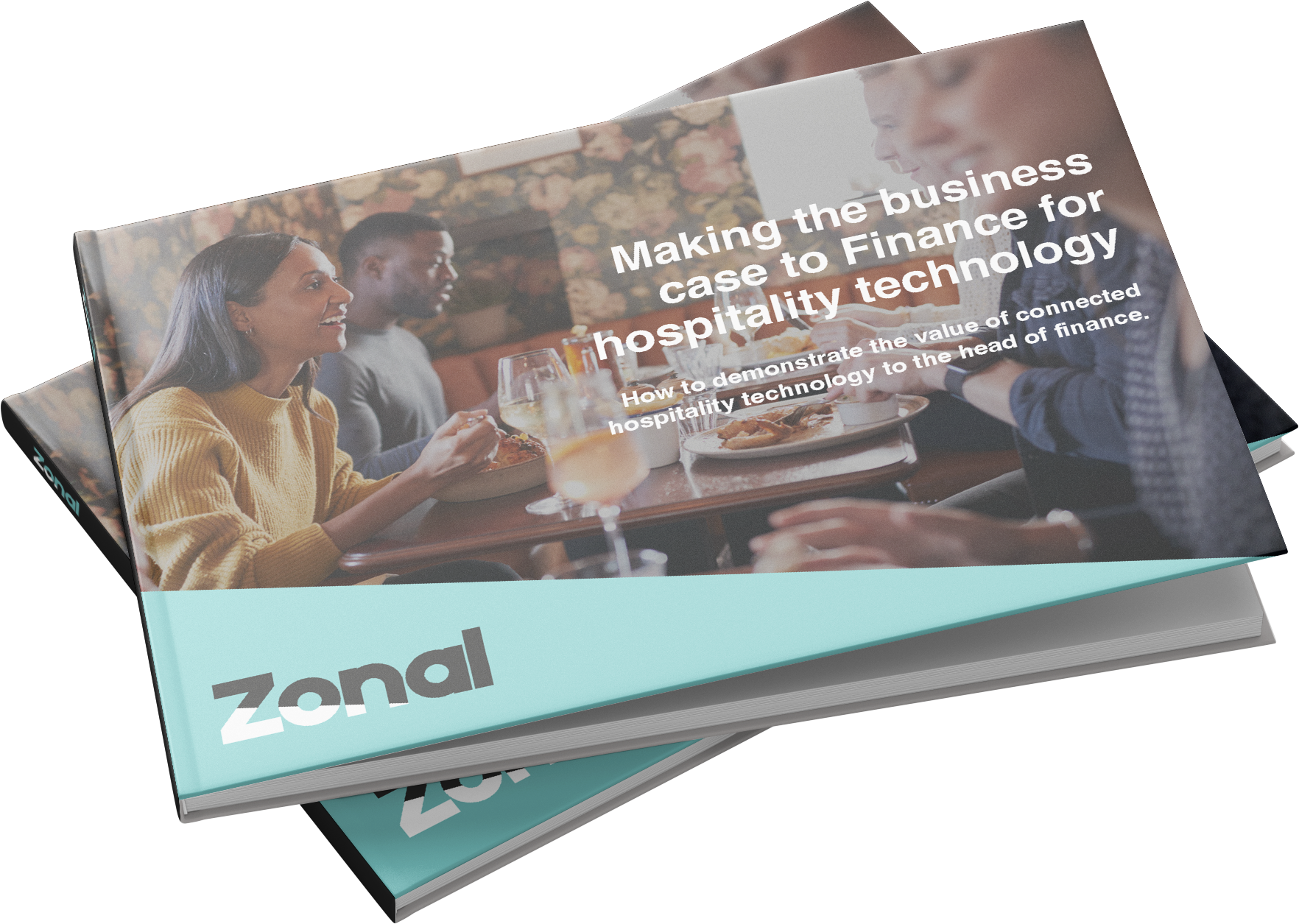
As an operator working day-in, day-out with your front- and back-of-house teams, you may already be acutely aware of the tangible benefits your technology can offer to your business. However, it can be difficult to “sell” those benefits across for stakeholders within the business that may not be direct users of the technology on a daily basis.
In this guide, we explore how hospitality technology can also meet the needs of your finance team, how the operational improvements it brings can have a positive impact on the wider business, as well as how it can help to deliver more accurate, data-driven insights that facilitate better decision-making to drive the business forward.


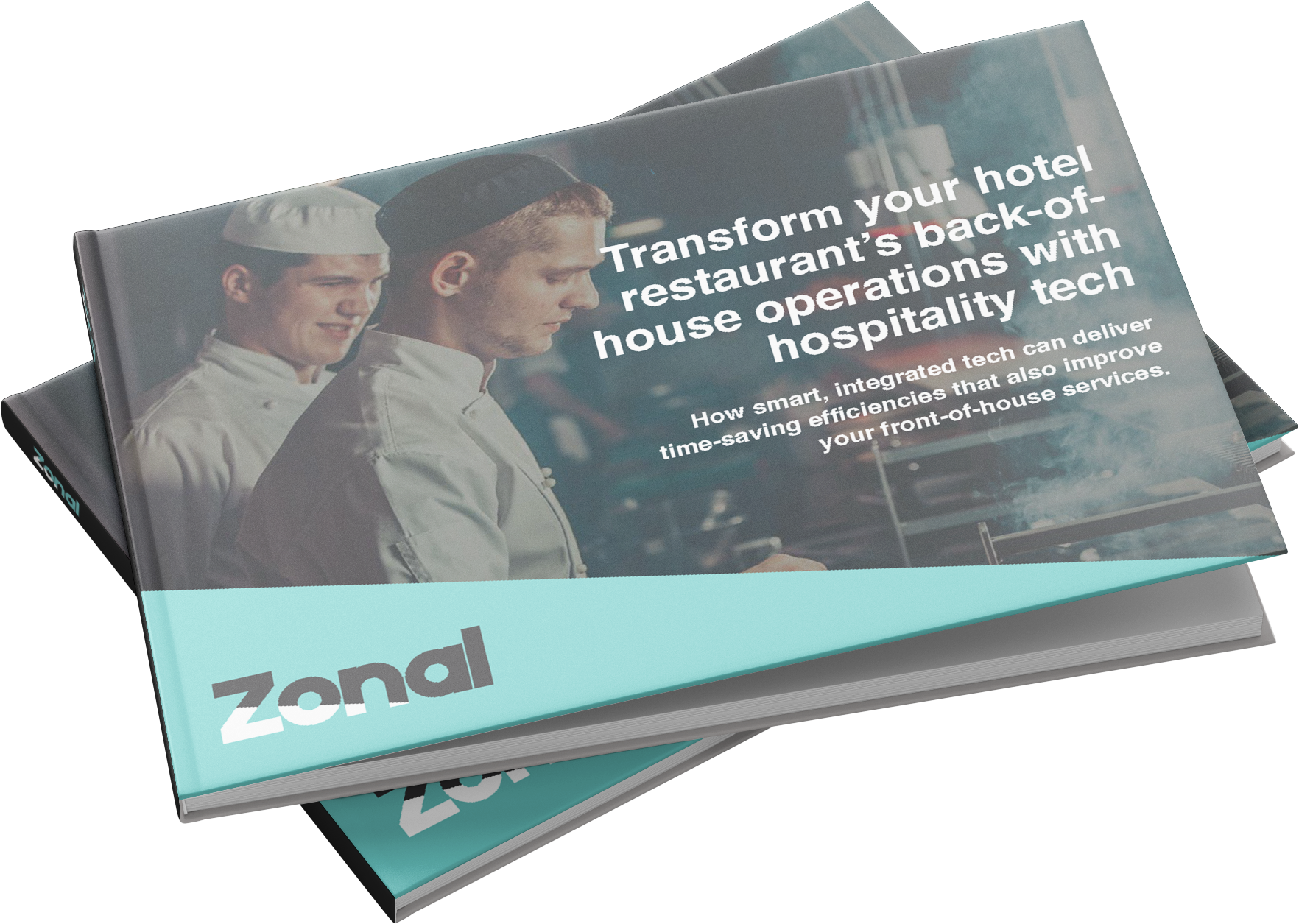
With cutting costs and maximising margins front-of-mind for many hoteliers, ensuring you have the right technology in place to collect, capture and report on operational data from your bar & restaurant is integral to making better, more informed decisions.
Discover how specialist hospitality technology can transform your hotel’s back-of-house F&B operations, from automated and streamlined processes that result in frictionless experiences for guests, to real-time, reliable data collected at every touchpoint within the restaurant that increases reporting accuracy for stock management and business performance to help you cut costs and boost profits.
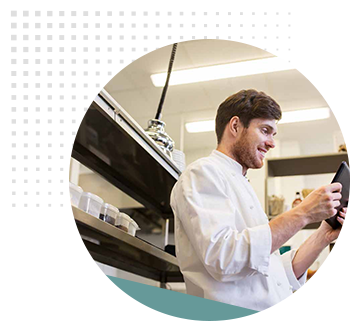
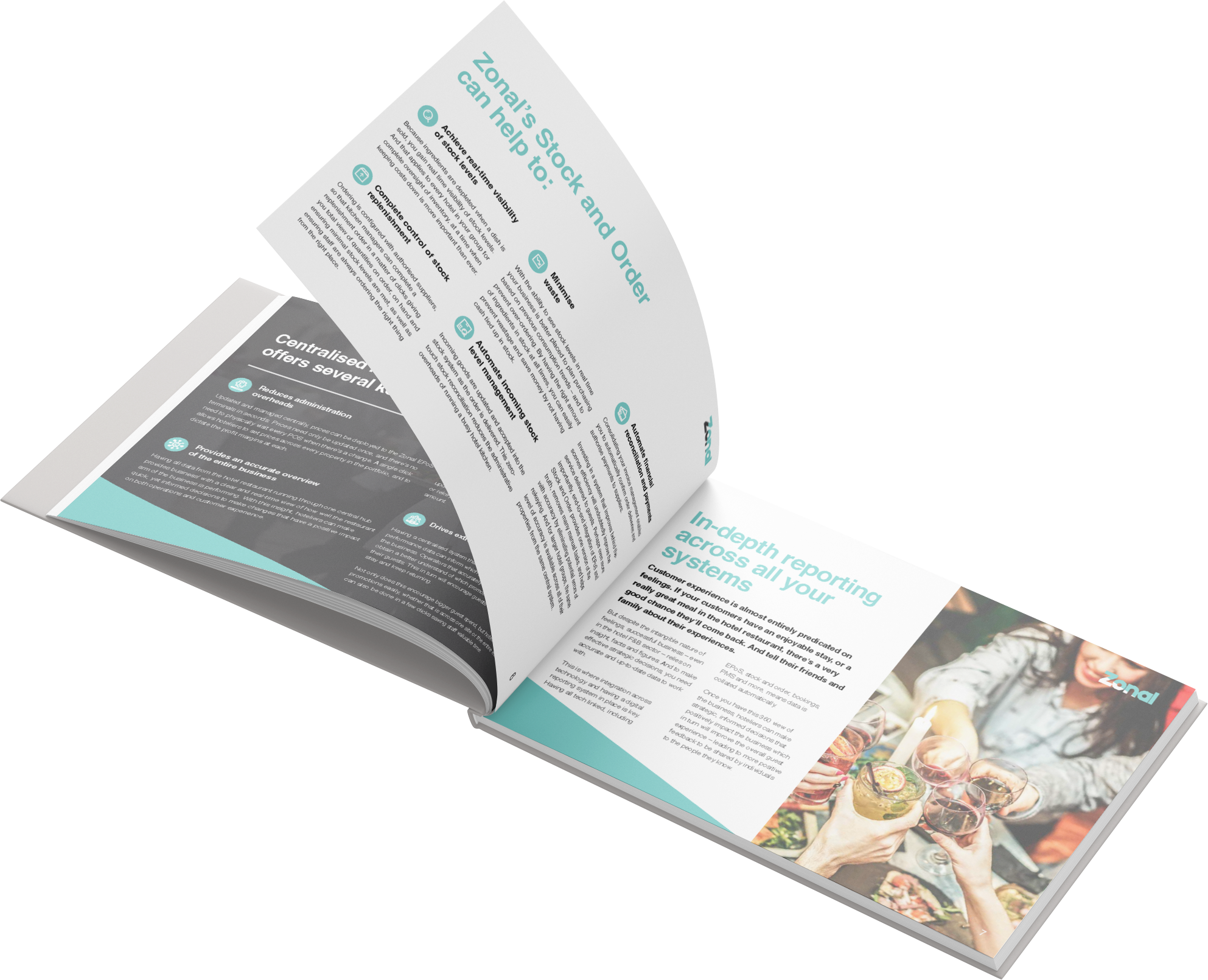
The current economic headwinds have made protecting margins more essential to hospitality businesses than ever before, but the right technology, in the right place, can help operators both maintain profitability and create a more sustainable business for the future.
Zonal technology can be a vital tool in this drive. From better, more granular reporting, to digital stock checks, to recipe management, waste reduction and more, our systems can help maximise margins and deliver more revenue.
Here are 10 ways Zonal systems can help you be as profitable as possible:
In today’s economic climate, no business can afford to have cash tied up in too much stock or to have items on the menu that just aren’t shifting. Integrated tech systems enable you to monitor the performance of the items you are selling right down to a product level, in real-time. This data will give you all the information you need to make informed decisions around pricing and ordering to boost margins and make potential savings on recipes or suppliers.
Fully integrated tech that can collate customer spend data from across all your different ordering channels makes reporting much easier, and allows you to more effectively plan staff and inventory requirements. This valuable data provides a view, not just of how your products are performing, but also insights such as what dates and times spend per head is at its highest, via which ordering channels, or the promotions that drive the most spending increases.
With recruitment, retention and the cost of staffing an ongoing challenge, any technology that eases the strain on teams whilst helping them achieve more will be an invaluable tool. Order and pay-at-table technology is already a preferred option for many customers and can do just that – taking part of the task performed by front-of-house teams and transferring it to customers. At the same time, mobile order and pay technology can actually increase consumer spend which means it can deliver increased yield from available capacity and a better bottom line.
Times when there are few bookings and little walk-in trade, can be turned into an opportunity for operators with the right technology. With systems that integrate your delivery and click & collect channels, you can increase order capacity on the fly during quieter periods – and decrease it at times when tables are full. This ensures you aren’t leaving any potential revenue on the table or in the takeaway bag, as well as maintaining productivity for the staff you have working.
Waste of some kind is inevitable, but minimising it is key to maximising margins. One area to look for improvements is in order fulfilment – minimising how much of your stock is going to waste during this stage can provide sizeable savings. Technology that has been designed specifically for use in pubs, bars and restaurants can help here. Such tech enables you to identify exactly where wastage is happening during food preparation, so you can take action before the costs start to add up.
Everybody makes mistakes and, while it’s impossible to completely eliminate the potential for errors (no matter how well designed the processes are), the right tech can help. Systems like ours enable you to track staff activity at all points, right down to a button-press level. This insight will help you identify common errors and any patterns of behaviour that may be causing issues, giving you the information you need to make improvements or to offer training to eliminate the issues.
By implementing a recipe management system that is integrated with your EPoS, you’ll have oversight of both sales and wastage data in one place. This will make it much simpler to spot cost-saving opportunities and make smarter, more informed decisions about menu options and pricing. This insight will also enable you to see sales trends as they emerge and to identify changing consumer patterns, helping you stay ahead of the market – and the competition.
A fully integrated tech stack draws product and pricing information from one central database. This means that any changes you make can be pushed out across the entire business in one go and with immediate effect. This ability to react in real-time, capitalising on any opportunities as they arise and addressing any challenges, will result in a more streamlined and agile business, and help you ensure you’re maintaining profitability as costs continue to fluctuate.
Operators often have large amounts of cash tied up in stock, so making sure you’re on top of stock levels is vital. Technology that automatically updates stock usage in real-time, allows you to identify which items see lots of usage and which don’t, and keep stock levels optimised. Smart systems can even give you estimates of how many days your current stock will last based on current usage data, helping you streamline your ordering and ensuring you don’t run out of anything important or leave cash tied up in stock that might go to waste.
Ordering stock from a number of suppliers, cross checking prices and delivery times is a huge drain on staff time and resources. Zonal’s end-to-end purchasing solution will allow your teams to manage approved suppliers within the system, including what products or ingredients they provide and at what price. This ensures staff are always ordering from the right supplier, at the right price and eliminating the possibility of incorrect ordering.
With our integrated technology working in the background to streamline processes, maximise efficiencies and minimise wastage, operators can be confident they have the systems in place to drive revenues and boost profits, even if the costs of doing business continue to rise.
Discover why Zonal is the best hospitality technology provider for businesses of all sizes

Data is an incredibly valuable tool for hospitality businesses. It can be used to improve any and every aspect of your business – grow margins, cut waste, streamline processes, acquire new customers, improve customer service and much, much more.
Nowhere, however, is data more valuable than when it comes to your customer journey. Data allows you to better understand your guests, helping you to remove their pain points, personalise their journey and create a more relevant experience which ultimately increases the likelihood they will become a loyal customer that returns again and again.
In this whitepaper, we explore the value data can bring to smaller hospitality businesses and how data can be used throughout the customer journey to improve experiences that keep guests coming back for more.
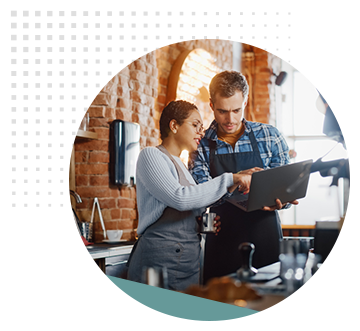
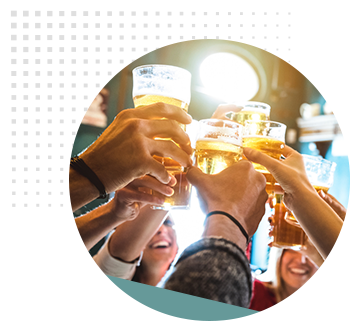
It can be hard to visualise all the different ways connected technology can improve both operations and guest experiences, so we thought we’d show you instead. Click below to explore our connected solutions through the eyes of your customers in our virtual pub, restaurant and hotel, and discover the benefits of integrated hospitality technology at every stage of the customer journey.